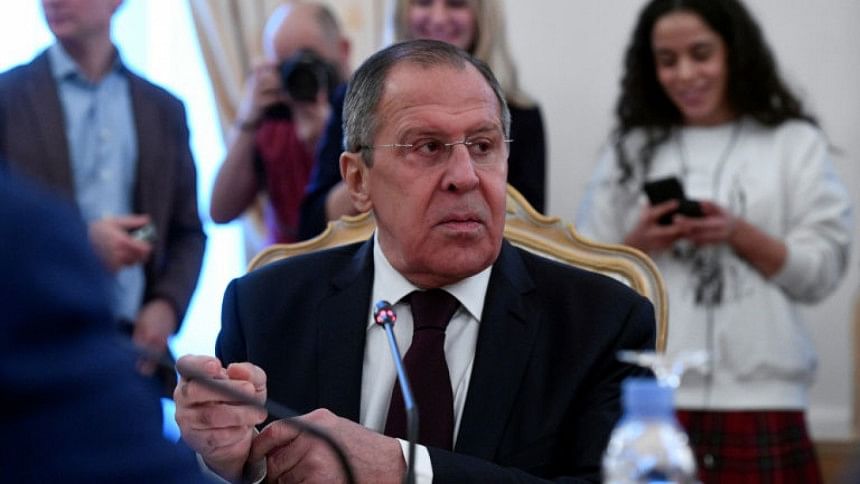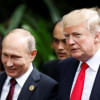US releases 'Putin list' of Russians eligible for sanctions

The US Treasury released a long-awaited list of Russian officials and business leaders eligible for sanctions under a law designed to punish Moscow for its alleged meddling in the election that brought Donald Trump to power.
The list published shortly before midnight on Monday features the names of most of the senior members in President Vladimir Putin's administration -- 114 politicians altogether -- and 96 business people the US considers 'oligarchs' close to Putin and worth at least $1 billion each.
The seven-page unclassified list -- which does not trigger sanctions right away -- features Foreign Minister Sergei Lavrov, Prime Minister Dmitry Medvedev and top officials in Russian intelligence agencies.
Also on the list were the chief executives of big state-owned companies such as energy giant Rosneft and Sberbank. A separate, classified annex lists lower-ranking government officials or Russians worth less than a billion dollars.
The list was widely expected to infuriate Putin and send shivers through his inner circle and Moscow's moneyed elite, as it threatens to cut them off from world finance.
Monday was the deadline for its release under a law passed last year by Congress over the objections of Trump, whom critics in the US say has been oddly reluctant to criticize Russia or Putin.
Under the same law, the State Department on Monday also declined to punish any US or foreign companies for dealings with Russian defense or intelligence agencies.
It argued this was not necessary because governments around the world have already nixed billions in contracts with Russian arms companies due to the mere threat of US action or secondary sanctions.
US lawmakers passed the law -- called the Countering America's Adversaries Through Sanctions Act -- out of concern that Trump, eager to have warm ties with Putin, might not take tough action to punish Moscow and Russian officials for interfering in US elections and destabilizing Ukraine.
Collusion probe
Special counsel Robert Mueller and two congressional panels are probing Russian interference in the election with the aim of helping Trump beat Hillary Clinton, whether the Trump campaign colluded in this effort and whether Trump has tried to obstruct the investigation.
Before leaving office in January of last year, then president Barack Obama imposed some sanctions on Russia over the election affair, targeting four Russian individuals and five entities and expelling 35 Russian diplomats.
In Moscow, the Kremlin said it would take its time to examine the list, which it called "quite unprecedented."
"It's not the first day that we live with quite aggressive comments made towards us, so we should not give into emotions," said Kremlin spokesman Dmitry Peskov, who is on the list himself.
But other Russian officials expressed anger and disappointment.
"We try to explain that sanctions lead us nowhere. We are not afraid of sanctions," the Russian ambassador to the US, Anatoly Antonov, told the TV network Russia 24.
"Officially, we have relations. But the inclusion on this list of virtual sanctions of the entire elite ruling class of our country means that our relations are truly breaking up," said Senator Vladimir Djabarov, deputy chairman of the foreign relations committee of the upper house of the Russian parliament, to the news agency RIA Novosti.
He said the list amounted to "gross interference" in Russian affairs.

 For all latest news, follow The Daily Star's Google News channel.
For all latest news, follow The Daily Star's Google News channel. 








Comments